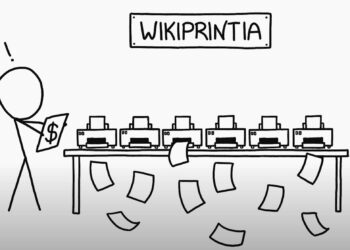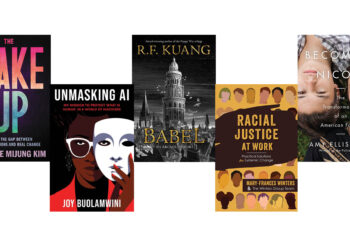
- Image by Timothy Valentine via Flickr
It’s no secret that churn has hit the book space, and it appears a wholesale transition is underway.
The Association of American Publishers reported recently that book sales were down 21% in September 2010 compared to a year before. Overall, book sales are up 3.8% for 2010, but this number keeps whittling lower as the year goes on. Most of the overall growth has come from sale of e-books, which were up 158% for September (2010 vs. 2009) and a total of 188% for 2010 overall compared to the year before.
Downloaded audio books also saw an increase of 73.7% year over year in September. The category is up 34.1% for the year.
The move from print books to digital books is accelerating — portable reading and listening devices are drawing readers from print, which was once the only viable portable and personal option for long-form works.
The only category that was up appreciably aside from e-books was higher education books, which have posted an overall increase in sales of 10.6% for the year. As an earlier post here discussed, this isn’t surprising given the moat protecting print in this market segment.
In response to these anticipated changes, the New York Times recently announced it will begin to include a list of e-book bestsellers among its bestseller lists. According to the announcement, the Times has spent two years creating the system that will measure e-book sales. It’s a natural move, and reminiscent of the changes in music bestseller lists, which went from fixed media sales to downloads over a period of a few years, and now is predicated more at the song level than the album level. (Will Amazon’s shared highlighting from the Kindle and similar things become the book equivalent of songs someday? Is that another list the Times might someday assemble?)
The move from printed books to e-books has accelerated, and seems unlikely to stop anytime soon.
Discussion
9 Thoughts on "Print Book Sales Fall, E-Book Sales Rise, and E-Books Will Soon Join the New York Times Bestseller List"
There is no doubt we are into a “new technology” S-curve of growth. The question is where it will level off, with a new equilibrium condition? The second (decelerating)half of an S-curve can’t be forecast from the first half.
Also, it can be misleading not to show the total numbers along with the percentages. Niche products can grow fast yet still be just niche products. Wind energy is a good example.
These data streams often mix revenue and unit growth in a way that makes it hard to tell what they’re talking about, I agree. Still, when something goes from 0% of an industry to potentially 25% in 4 years, that’s significant. Wind energy hasn’t made those kinds of inroads into the energy market.
Surely ebooks are not 25% of book sales. Not if ebook sales are up 188% while book sales are up 3.8%.
Not yet, but multiple sources are projecting it within the next few years. The exact timing isn’t clear, but the line is inclined. People just don’t yet have a perfect read on the angle.
If ebook sales do not grow fast enough to offset declining print sales–and there is no indication yet that this is happening–the industry is in real trouble. But one also has to look at AAP results with some skepticism. They are notoriously unreliable as a snapshot of the industry overall. E.g., their university press data draws from only a small number of presses and are highly skewed, and thus much less reliable for this sector than AAUP’s results.
Not a comment about this post, but about the site in general – I notice that you have Google Ads on your site encouraging me to buy Sushi – not sure if this fits that well with the overall tone of the blog??
And a comment about this post:
Regarding textbooks – isn’t this a sign of people going to school rather than into jobs because of the recession? Textbook publishers have been publishing e-content for many years, but rightly are fearful of letting their book content off the leash – print piracy itself is a big enough problem for them.
Eric Hellman has some really interesting thoughts on print piracy (or lack thereof) that I recommend.
“Consumer Interest in Pirated eBooks is Even Lower Than I Thought”
http://go-to-hellman.blogspot.com/2010/11/consumer-interest-in-pirated-ebooks-is.html



